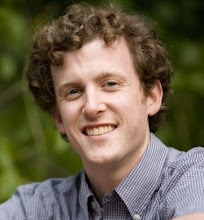 Last week Indianapolis installed five donation boxes downtown. The boxes, along with a large public education campaign, are aimed at discouraging people from giving to panhandlers and encouraging them to "chip in at the box" instead. The money will be given to organizations that help the homeless. Other cities have been able to reduce panhandling in this way; you can read more about the idea here.
Last week Indianapolis installed five donation boxes downtown. The boxes, along with a large public education campaign, are aimed at discouraging people from giving to panhandlers and encouraging them to "chip in at the box" instead. The money will be given to organizations that help the homeless. Other cities have been able to reduce panhandling in this way; you can read more about the idea here.On the one hand, it seems like a good idea; panhandling certainly doesn't solve the problem of homelessness. But these comments from our panhandling-hating, infinitive-splitting mayor gave me pause:
At a news conference Thursday, Mayor Greg Ballard and advocates for the homeless said most panhandlers are not homeless -- they are scam artists betraying people's trust and good intentions. "If you want to truly help the homeless, give to the groups who provide the services that make people more productive," Ballard said. "The panhandlers will go away when the money goes away."


